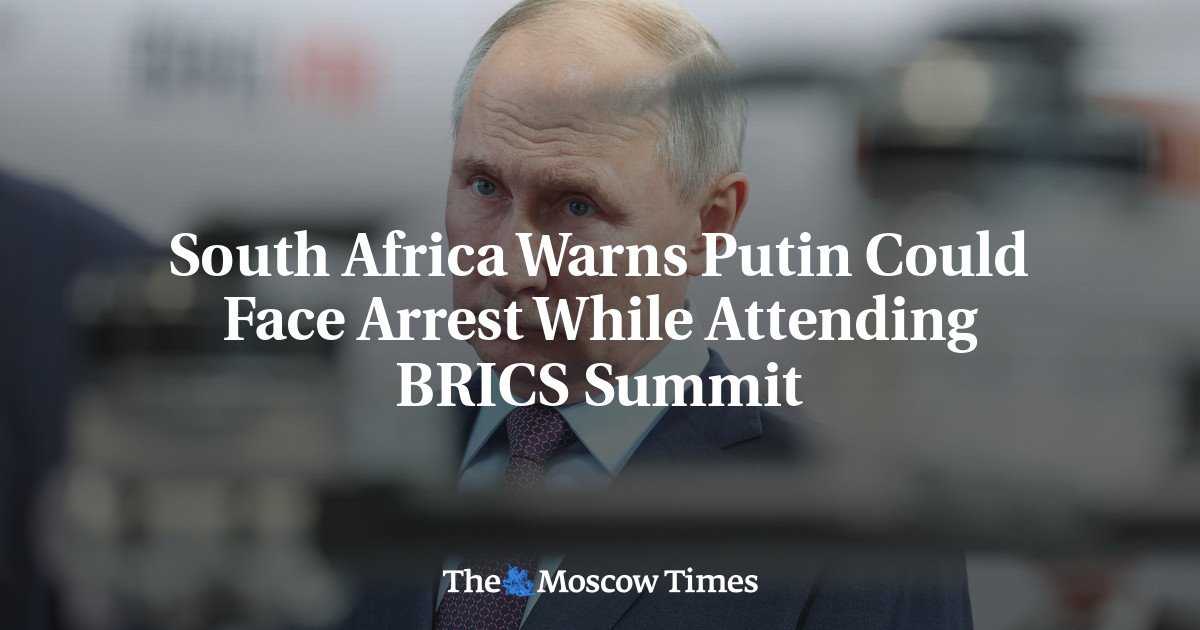
The South African authorities have been attempting to dissuade Russian President Vladimir Putin from attending the BRICS summit it is hosting in Gauteng in August over fears that it would be compelled to arrest him following a warrant for his arrest issued by the International Criminal Court in The Hague in March.
Attending the summit alongside the leaders of South Africa, China, India, and Brazil would have been a significant diplomatic coup for Putin as well as his first major foreign trip since he ordered Russian troops into Ukraine.
Citing sources in the country’s government, South Africa’s Sunday Times said that a special government commission established by President Cyril Ramaposa had concluded that the country would have no choice but to arrest Putin if he sets foot on South African soil.
As South Africa has ratified the Rome Statute, the main document governing the ICC, it is obliged to obey its decisions, including arrest warrants for suspected war criminals.
“We have no option not to arrest Putin,” a government official told The Sunday Times. “If he comes here, we will be forced to detain him.”
The newspaper’s sources say Pretoria remains in talks with the Kremlin, which has been noncommital about how Putin plans to attend the summit.
“Of course, we will take part in the summit to be held in South Africa. Of course, this will be preceded by our bilateral contacts with the South Africans, we will clarify their position,” Kremlin spokesperson Dmitry Peskov said in late April.
Legally, the South African authorities have no choice: if Putin is not arrested, it would violate not only international law but also the laws of South Africa, says Priyal Singh, a senior researcher at South Africa’s Institute for Security Studies.
Even the theoretical scenario of an exemption from the ICC jurisdiction before Putin’s possible visit is not feasible — there simply isn’t enough time. If Putin does show up, it would be a “huge negative,” and the government is obviously aware of that, Singh added.